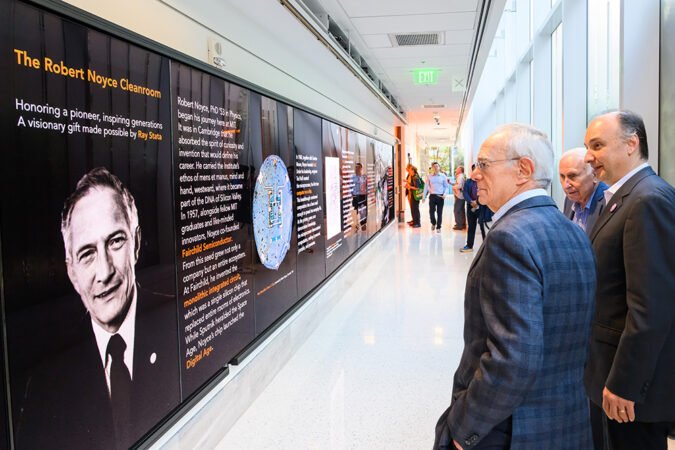Top Highlights
-
MIT.nano’s Leadership Role: MIT President Sally Kornbluth emphasized the critical role of MIT.nano in advancing global challenges through collaborative efforts in nanoscience and nanotechnology.
-
Healthcare Innovations: Researchers discussed transformative health solutions, such as single-injection vaccines and novel drug delivery systems, showcasing the integral relationship between the tech and pharmaceutical industries.
-
Manufacturing Focus: The Initiative for New Manufacturing aims to connect graduates to industry challenges, emphasizing the need for skilled technologists to bridge gaps between engineers and technicians in advanced manufacturing.
-
Climate Change Solutions: Faculty presented nanotechnology applications for climate resilience, highlighting interconnected solutions that address ecological, health, and economic concerns, while underscoring the sustainable transition of the global economy.
MIT Advances Nanotechnology: Shaping the Future in Health and Climate
MIT held the 2025 Nano Summit, highlighting the transformative potential of nanotechnology for global challenges. President Sally Kornbluth opened the event, stating, “MIT.nano is essential to making progress in high-priority areas.” The summit emphasized collaboration and innovation, focusing on health, manufacturing, and climate change.
In the health sector, faculty director Angela Koehler posed a key question: How can MIT tackle pressing health issues? Researchers presented inspiring solutions. Ana Jaklenec from the Koch Institute discussed her team’s work on single-injection vaccines, integrating techniques from microelectronics. Giovanni Traverso, a gastroenterologist, drew inspiration from nature for novel drug delivery systems.
In manufacturing, the Initiative for New Manufacturing (MIT INM) aims to connect students to real-world applications. Co-director A. John Hart emphasized the importance of training graduates to innovate. However, the journey from lab to market remains challenging, as speaker Elisabeth Reynolds noted. She pointed out that attracting skilled workers is crucial for success.
Transitioning to climate solutions, Benedetto Marelli stressed the need for interdisciplinary approaches. Researchers demonstrated nanoscale advancements for sustainability. Michael Strano showcased converting waste materials into renewable resources, while Desirée Plata focused on carbon dioxide removal systems.
A pivotal moment came with the announcement of the Robert N. Noyce Cleanroom, honoring the late visionary in semiconductor technology. Ray Stata, a supporter of nanoscale research, emphasized the importance of fostering a collaborative research environment.
The excitement at the summit exemplified MIT’s commitment to tackling global issues. Researchers continue to inspire innovation, proving that even the smallest solutions can lead to significant change. With leaders like Kornbluth and Stata advocating for collaboration, the future of technology looks bright.
Discover More Technology Insights
Learn how the Internet of Things (IoT) is transforming everyday life.
Stay inspired by the vast knowledge available on Wikipedia.
QuantumV1

